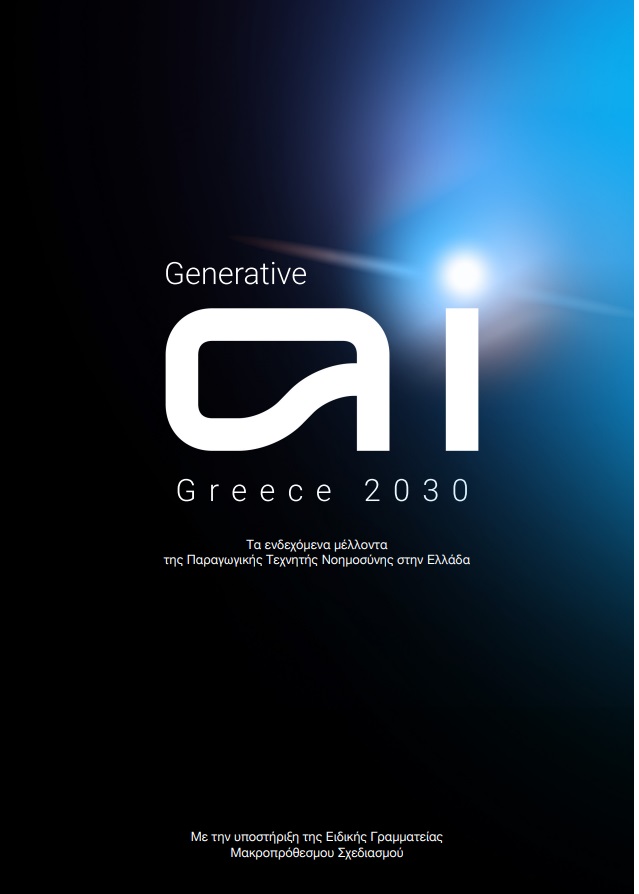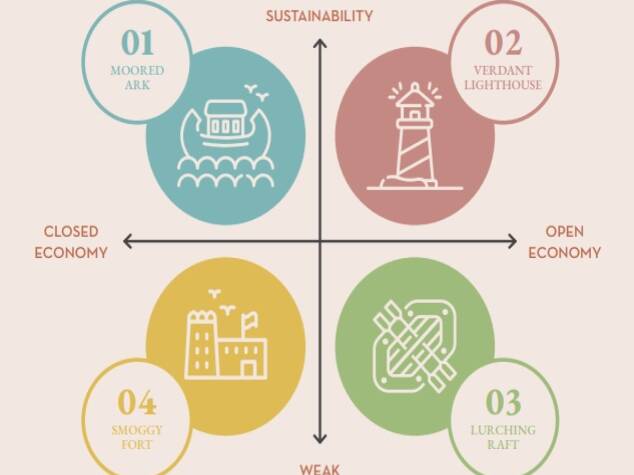The research presents trends, possibilities, challenges, uncertainties and possible options that will shape the future of the AI ecosystem in the country. It also provides a framework of proposed strategic initiatives and policy recommendations. Its main objective is to draw on the collective knowledge and foresight perceptions of a sample of Greek experts/specialists on the impact of the domestic Gen AI ecosystem, in the time frame of 2030.
More specifically, following a thorough preliminary desk research, systematic literature review and multimethod horizon scanning, we proceeded to interviews using questionnaires. The informants are a rich and inclusive group of 30 experts representing different stakeholders (public administration, research-academic community, business-private sector and civil society, professional and scientific associations), who are systematically involved in Gen AI. They were asked to evaluate a series of hypotheses and statements on the future (or possible futures) of Gen AI in the country until 2030.
This research presents four scenarios of possible alternative future images of Gen AI in Greece by 2030. The first is called “techno-social acceleration”, where the world is described as adaptable and freed from technophobic entanglements, while the sustainability and value of the Gen AI ecosystem are at a high level accompanied by a fairly resilient liberal political system. In the second scenario, the “techno-dwarf”, the open economy and a set of favorable political intentions prevail, but the GEN AI ecosystem loses momentum and is not a priority due to excessive regulations and strict bureaucratic rules. The third scenario is described by the term ‘technosocial tarriness”. It represents a stunted or underdeveloped Gen AI ecosystem in a closed and technophobic world, alongside a significant lack of ethical and regulatory frameworks, public policies, and institutional interventions. The fourth scenario depicts a “techno-giant” with feeble, poor legs and represents a Gen AI ecosystem that reflects the global technological boom, but within a socio-cultural and political environment that is unable to turn speed into adaptation, to integrate modern techno-evolutions and to exploit the possibilities and opportunities they offer.
The global geopolitical and geo-economic order is becoming increasingly uncertain, complex and unstable. Gen AI seems to amplify these systemic features, highlighting the need for an ‘exponential’ and future-oriented way of thinking. We cannot be sure what the future holds, nor can we avoid constant disruption in an era of permacrisis. But it is up to us to harness this generalized uncertainty/complexity, set long-term goals, adapt institutions and mindsets, be adequately prepared and work towards the most favorable scenario – i.e., the ‘technosocial acceleration’ scenario – to enhance the country’s capacity for sustainable growth and resilient prosperity, based on dynamic diagnoses of the trends, uncertainties and opportunities emerging around us.
You can find the report here

Generative AI Greece 2030, “Futures of Generative AI in Greece”






